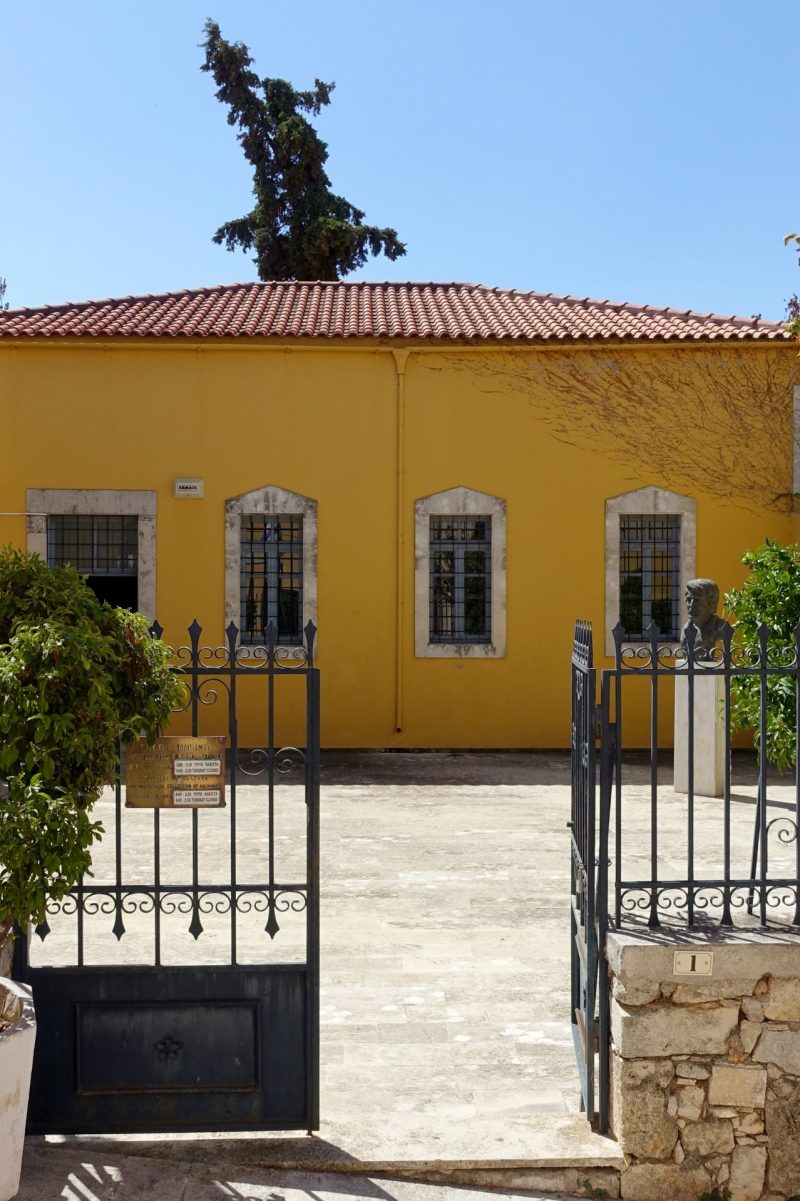

12°C
The Archaeological Collection of Archanes was founded in 1993 on the initiative of the archaeologists Yannis and Efi Sakellarakis, in order to preserve the important findings from the excavations in the area. The collection is exhibited in a 19th-century neoclassical building, originally used as a school, in the “Tzami” area of Archanes.
The museum offers an excellent panorama of life in Crete from Minoan times to Roman times. Objects from the important Minoan cemetery on the Fourni hill, rare sarcophagi, children’s graves in pithoi, ivory jewelry, Cycladic figurines and ceremonial vases frame the exhibition. The presentation of real burial contexts is impressive and gives a vivid picture of ancient customs.
Of particular importance are the findings from the sanctuary of Anemospilion, where a possible human sacrifice was found, shedding light on aspects of Minoan religious practice. The exhibits include replicas of wooden swords, cult objects and an impressive bronze sword.
The collection is organized thematically: ceramics from all periods, lithography, tools of daily life, storage utensils, textile weights and artifacts. A stone grape crusher from Fourni stands out, as well as exhibits that reveal the development of viticulture and wine production as early as the Minoan period.
Museum
Archaeological
Epano Archanes, Heraklion
+30 2810752712
Monday – Sunday: 09:00-19:00
Tuesday: Closed
For the Rural Greece accessibility is fundamental to enhancing an inclusive tourism experience. Following the principles of inclusion and equality, the epaithros Rural Tourism Network and its member businesses are constantly working to enhance the tourism services provided, ensuring that all visitors have the opportunity to experience the authentic beauty of the Greek countryside.
Sustainability in tourism refers to a way of developing tourism that respects and protects the environment while strengthening the local economy and preserving cultural traditions. The aim of sustainable tourism is to provide unique and authentic experiences for visitors without harming the natural and social environment, while ensuring that local communities benefit from tourism activity.
This type of tourism is based on three pillars:
With sustainable tourism, visitors can have authentic experiences, knowing that the impact of tourism on the region is positive and lasting for future generations.
For Rural Greece, localism is one of the most important factors for the development of sustainable tourism, as it promotes a strong link between the tourism product and the local society, economy and culture. Through localism, visitors get the opportunity to explore authentic elements of the destination, such as local products, traditions and culture. This not only boosts the local economy, but also helps to sustain and strengthen local businesses, creating new jobs and supporting the development of local communities.
Furthermore, localism contributes to the sustainability of the tourism sector, as it reduces the use of resources from other regions and encourages the use of local goods and services, reducing the ecological footprint of tourism activities. Thus, integrating localism into tourism practices enhances sustainability awareness, both among visitors and local businesses, creating a more responsible and sustainable tourism destination.